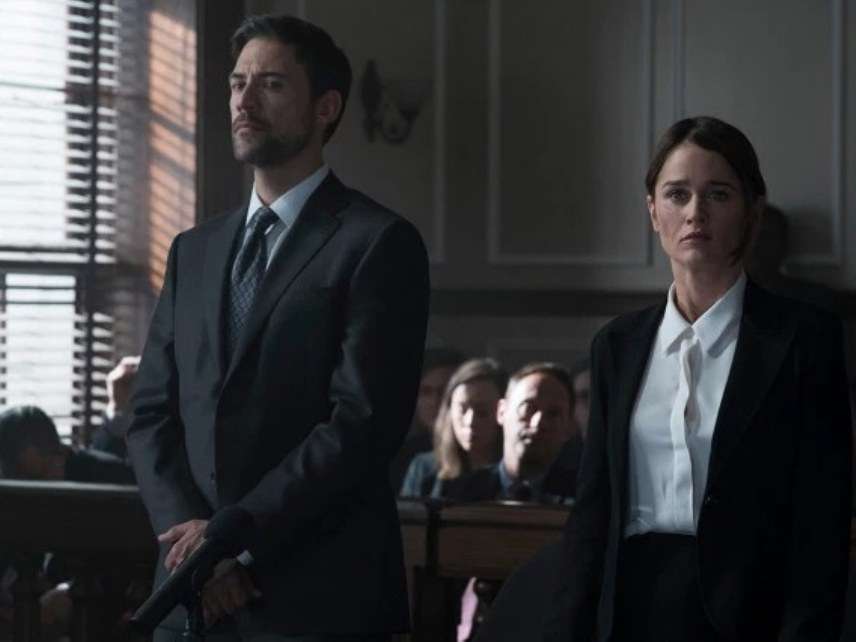Marcia Clark Demands an O.J. Simpson Redo in The Fix
Thinly veiled ABC drama blames the jury for flaws in the case.

The Fix. ABC. Monday, March 18, 10 p.m.
Let's have a little contest. I'll describe a new TV show, and you see if you can guess who produced it:
A (black) superstar is accused of brutally murdering his (white) wife and one of her friends. A genius (white) female prosecutor assembles a mountain of evidence against him, only to have a jury of blockheads vote for acquittal.
And now, eight years later, there's been another murder, of the superstar's (white) girlfriend. The prosecutor is called back from retirement to go after the superstar again. "This time," a member of her staff pledges, "we're going to get him."
You're right! Marcia Clark, the failed O.J. Simpson prosecutor, is one of the writers and executive producers behind ABC's new legal drama The Fix, and she clearly believes revenge is a dish best served as a TV dinner: stale, overcooked, and tasting like cardboard.
Clark, in the wake of the Simpson verdict, was mercilessly ridiculed by everyone from Manson prosecutor Vincent Bugliosi to Tina Fey. But since 2016, when Sarah Paulson portrayed Clark sympathetically if not uncritically in FX's The People v. O.J. Simpson, there's a growing body of thought that she was the trial's real victim, a feminist martyr to free-floating American misogny.
That, apparently, opened the door to The Fix, which is little more than a primal Clark scream. Robin Tunney (The Mentalist) plays Clark doppelganger Maya Travis, hot in pursuit of movie star Sevvy Johnson, (Adewale Akinnuoye, the mysterious Mr. Eko of Lost). Scott Cohen (The Americans) is tough, cynical defense attorney Ezra, a composite of Simpson's Dream Team of super lawyers.
The cast, much better than the scripts deserve, struggles mightily to turn The Fix into something more than a heavy-handed propaganda treatment of the Simpson case. But it's simply not possible. Scarcely a scene goes by without a venomous remark on the manifest unfairness and/or stupidity of juries.
Proclaims one prosecutor: "It wasn't about the evidence … [it] was about 400 years of racial injustice and a celebrity client who knew how to break out a megawatt smile." And it certainly wasn't about Clark, err, Maya Travis. "She's tough, but she fights fair," says the defense lawyer. "That's always been her weakness."
While there's a lot of talk about how dumbheaded the jurors were, there's no discussion at all—at least in the first two episodes, all that ABC provided for review—about what the evidence there was, or wasn't, against Sevvy Johnson.
So we don't know if the state failed to present an eyewitness to the crime, or the murder weapon, or any clothing worn by the killer other than a glove that notoriously didn't fit. We don't know if there were unresolved questions about the chain of custody of the blood evidence, or if a key prosecution witness turned out to be a racist perjurer.
All of those things—each of which might have been a significant impediment to a guilty verdict—were true of the Simpson trial, though they've apparently slipped into the fog of Clark's memory. Though one thing she recalls clearly enough: the victims. "I still see them in my dreams," says Travis. Fair enough. But take it up with a psychiatrist, not a television audience.

Show Comments (18)